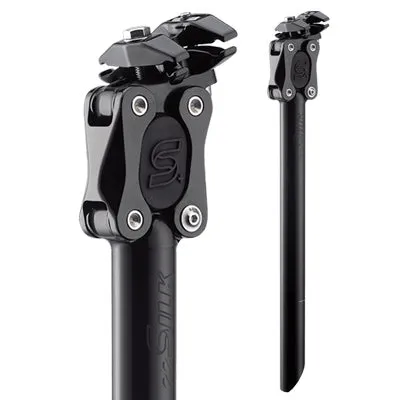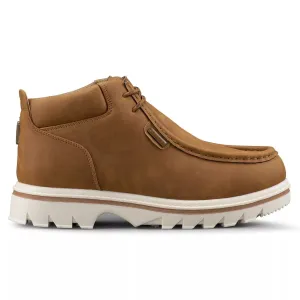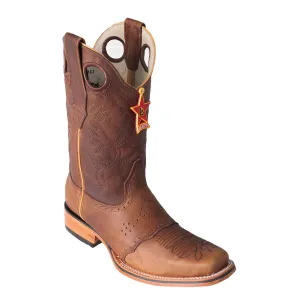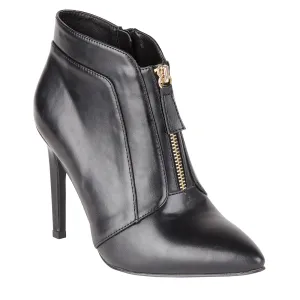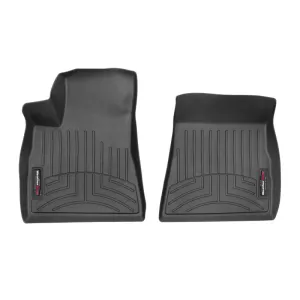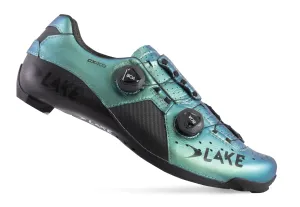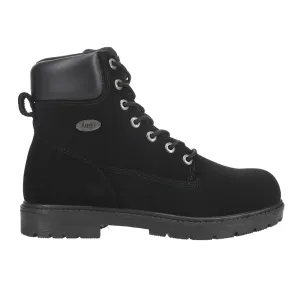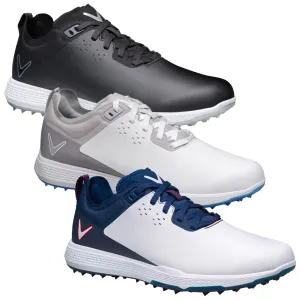Gravel suspension seatpost increases travel from 20mm to 35mm
-Compliance on any bike without additional weight
-Ideal for any surface or gravel adventure
-#5 (Medium) elastomer comes pre-installed
-Can be tuned to rider weight through a simple elastomer change
-Optional weight elastomers sold separately
-Forged aluminum with machined finish
-Stainless steel pivot axles and hardware
-250lb rider weight limit
-Travel: 35mm, Length: 387mm, Offset: 12mm
-250 Lbs.
-Aluminum
-373
-These posts make great enhancements to gravel or mixed surface bikes by reducing the chatter transmitted from the surface to the rider and can be tuned to rider weight through a simple elastomer change.
-Available for Pickup within 2 to 1 businesses days
|
|
|
|
Everything You Need to Know About Choosing Bicycle Seatposts
Introduction:
Choosing the right bicycle seatpost is essential for both comfort and performance. Bicycle seatposts connect the saddle to the bike frame and allow for height adjustments. The right seatpost can significantly improve your riding experience by providing stability and comfort. From material to design, various factors play a crucial role in selecting the perfect seatpost for your bicycle.
When choosing a bicycle seatpost, consider the type of riding you do most frequently. Different seatposts are designed for road cycling, mountain biking, touring, or commuting. Each type offers specific features to accommodate the unique demands of these activities. For instance, a road bike seatpost is usually lightweight and aerodynamic to enhance speed and performance.
In addition to the type of riding, consider your personal preferences and bike setup. Factors such as seatpost diameter, length, and setback can influence your overall comfort and efficiency. Some seatposts offer suspension to absorb shocks, while others are rigid for maximum power transfer. Taking the time to select the right seatpost can greatly enhance your cycling experience.
Understanding Different Types of Bicycle Seatposts
There are various types of bicycle seatposts designed to suit different cycling needs and preferences. HereÕs an overview of the most common types:
Rigid Seatposts:
Rigid seatposts are the most common type and are known for their simplicity and reliability. Key features include:
- Lightweight design for efficient power transfer
- Simple construction with minimal maintenance
- Variety of materials such as aluminum, carbon fiber, and titanium
Rigid seatposts are ideal for riders who prioritize performance and efficiency. Their lightweight design allows for better power transfer, making them suitable for road cycling and racing. Aluminum seatposts are affordable and durable, while carbon fiber options offer a balance of strength and lightness. Titanium seatposts provide a smooth ride and are highly resistant to corrosion.
When selecting a rigid seatpost, consider the material that best suits your riding style and budget. Aluminum seatposts are a cost-effective option for most riders, while carbon fiber and titanium seatposts cater to those seeking high performance and comfort. Proper maintenance, such as regular cleaning and inspection, can ensure the longevity of rigid seatposts.
Suspension Seatposts:
Suspension seatposts are designed to absorb shocks and vibrations, providing a smoother ride. Features include:
- Built-in suspension system to reduce impact
- Adjustable settings for personalized comfort
- Ideal for off-road and touring applications
Suspension seatposts are perfect for riders who frequently encounter rough terrain or prefer a more comfortable ride. The built-in suspension system helps absorb shocks and vibrations, reducing fatigue and discomfort during long rides. These seatposts are commonly used in mountain biking and touring, where varying terrains and extended hours in the saddle are common.
When choosing a suspension seatpost, look for models with adjustable settings to fine-tune the level of suspension to your preference. Features such as preload adjustment and damping control allow you to customize the ride quality. Regular maintenance, including lubrication and inspection of the suspension components, is essential to ensure optimal performance.
Dropper Seatposts:
Dropper seatposts offer on-the-fly height adjustment, making them popular among mountain bikers. Features include:
- Remote-controlled height adjustment
- Enhanced control and stability on descents
- Hydraulic or mechanical actuation
Dropper seatposts are a game-changer for mountain bikers, allowing riders to quickly adjust the saddle height without stopping. This feature provides better control and stability when navigating technical descents or challenging trails. Dropper seatposts are available with either hydraulic or mechanical actuation, each offering unique benefits.
When selecting a dropper seatpost, consider the actuation method and travel range. Hydraulic droppers offer smoother and more reliable operation, while mechanical droppers are easier to maintain. The travel range determines how much the saddle can be lowered, with longer travel being beneficial for aggressive riding. Regular maintenance, such as bleeding the hydraulic system or checking the cable tension, ensures consistent performance.
Aero Seatposts:
Aero seatposts are designed for aerodynamic efficiency, commonly used in time trials and triathlons. Features include:
- Streamlined design to reduce drag
- Lightweight materials for optimal performance
- Integrated features for aerodynamic gains
Aero seatposts are tailored for competitive cyclists seeking to maximize speed and efficiency. Their streamlined design minimizes drag, allowing for faster rides. These seatposts are often made from lightweight materials like carbon fiber to reduce overall bike weight. Integrated features, such as hidden clamps and aerodynamic shapes, further enhance performance.
When choosing an aero seatpost, ensure it is compatible with your bike frame and meets the aerodynamic requirements of your riding discipline. Proper installation and alignment are crucial to achieve the best aerodynamic benefits. Regular inspection for cracks or damage is important to maintain the integrity of the seatpost.
Essential Features of Bicycle Seatposts
When selecting a bicycle seatpost, several key features can enhance your riding experience. Here are some important aspects to consider:
Material:
The material of the seatpost plays a significant role in its performance and durability. Common materials include:
- Aluminum for affordability and strength
- Carbon fiber for lightweight and vibration dampening
- Titanium for a balance of strength and comfort
Aluminum seatposts are a popular choice due to their affordability and strength. They provide a good balance of performance and cost, making them suitable for various types of riding. Carbon fiber seatposts offer superior vibration dampening and are exceptionally lightweight, ideal for performance-oriented cyclists. Titanium seatposts combine strength and comfort, providing a smooth ride and excellent durability.
When choosing a seatpost material, consider your budget and riding requirements. Each material offers unique benefits, and the right choice depends on your specific needs. Regular inspection and maintenance can prolong the lifespan of your seatpost, regardless of the material.
Clamp Mechanism:
The clamp mechanism secures the saddle to the seatpost and affects the ease of adjustments. Key features include:
- Single-bolt or two-bolt designs for stability
- Micro-adjustment capability for precise saddle positioning
- Secure grip to prevent saddle movement
Single-bolt clamp mechanisms offer simplicity and ease of use, making saddle adjustments quick and straightforward. Two-bolt designs provide greater stability and allow for more precise micro-adjustments, ensuring the perfect saddle angle. A secure grip is essential to prevent unwanted saddle movement during rides.
When selecting a seatpost, consider the clamp mechanism that best suits your needs. For riders who frequently adjust their saddle, a two-bolt design with micro-adjustment capability is beneficial. Ensure the clamp securely holds the saddle rails and check for any signs of wear or damage regularly.
Setback:
Setback refers to the horizontal distance between the center of the seatpost and the saddle clamp. Features include:
- Zero setback for a forward riding position
- Offset options for customized fit
- Enhanced comfort and power transfer
Zero setback seatposts position the saddle directly above the seatpost, providing a more forward riding position. This setup is ideal for aggressive riding styles and time trials. Seatposts with offset options allow for a more relaxed riding position, enhancing comfort and power transfer.
When choosing the setback, consider your riding style and bike fit. A proper setback ensures optimal weight distribution and comfort, reducing the risk of strain or injury. Experimenting with different setback options can help you find the most comfortable and efficient position for your rides.
Adjustability:
Adjustability is crucial for achieving the perfect saddle height and angle. Features to look for include:
- Easy-to-use adjustment mechanisms
- Secure locking systems to maintain settings
- Compatibility with various saddle types
Adjustable seatposts allow for fine-tuning of saddle height and angle, ensuring a personalized fit. Easy-to-use adjustment mechanisms make it simple to achieve the desired settings, while secure locking systems ensure the adjustments stay in place during rides. Compatibility with various saddle types ensures versatility and convenience.
When selecting an adjustable seatpost, look for models that offer a wide range of adjustment options. Regularly check and tighten the adjustment mechanisms to maintain a secure fit. Properly adjusted seatposts enhance comfort and efficiency, allowing for a more enjoyable riding experience.
Why Choose Us
Live 4 Bikes is your ultimate destination for high-quality bicycle seatposts. We offer a wide range of bicycle seatposts to suit all preferences and budgets. Our products are made from durable materials to ensure longevity and smooth performance. We provide expert advice to help you choose the right bicycle seatpost for your needs. With competitive prices, exceptional customer service, and a commitment to quality, we ensure that your cycling experience is always comfortable and efficient. Choose Live 4 Bikes for all your bicycle seatpost needs and experience the convenience and reliability of our products.
At Live 4 Bikes, we understand the importance of finding the perfect bicycle seatpost. Our team of experts is dedicated to helping you select a seatpost that fits your lifestyle and riding requirements. We offer personalized recommendations and guidance to ensure you make an informed decision. Our extensive range of bicycle seatposts includes options for every type of rider, from beginners to experienced cyclists.
Our commitment to customer satisfaction sets us apart. We offer a comprehensive warranty on all our bicycle seatposts, providing you with peace of mind and confidence in your purchase. In addition, we provide ongoing support and maintenance services to keep your seatpost in top condition. At Live 4 Bikes, we are passionate about promoting cycling as a sustainable and enjoyable mode of transportation. Join our community of satisfied customers and discover the benefits of riding with a high-quality seatpost.

 Cart(
Cart(